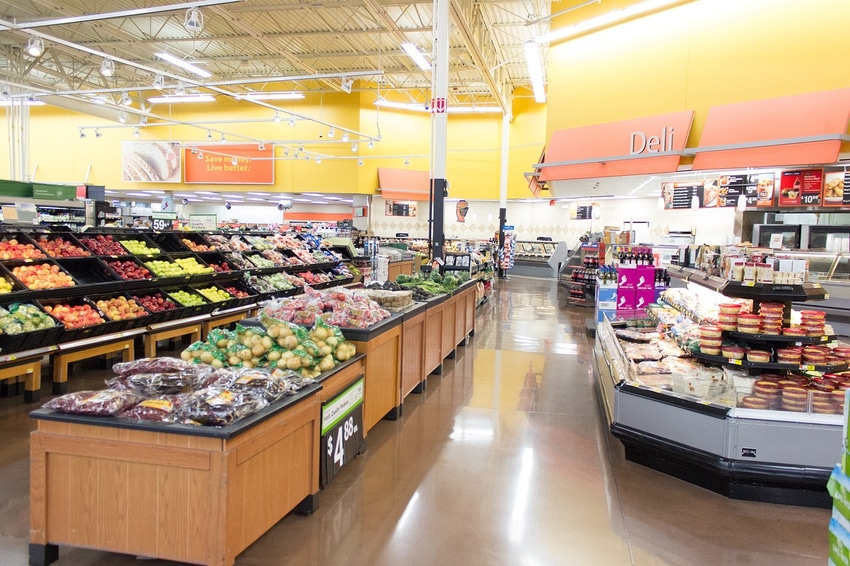Does it really make sense to chew on your kale salad while saying junk food is empty calories and sugary sodas should be highly taxed or that the poor don’t have adequate access to a decent diet?

That is the question. Is eating an ethical act? The growing ethics ‘police’ movement thinks so and would have farmers and ranchers drastically alter their practices so current ‘unethical’ acts quickly come to an end.
I’ve attended a pair of university-sponsored events in the past two weeks that positioned the ethical eating concept as near sacred. The decisions you make when you set the dinner table, a few speakers suggested, have far-reaching effects on the health of the planet as well as its people. Making wise dining decisions, therefore, is an important ethical pursuit. I suggest they are over reaching.
Academics at both events said the pursuit of ‘cheap food’ -- something government programs have been designed to do for at least the last eight decades -- is unethical. Let the real cost of food be reflected at the supermarket. It’s much higher cost might encourage people to eat smaller and healthier portions. It would definitely be healthier for the planet and better for the animals we consume.
Here is the heart of the matter: Ethical eating is an issue important to wealthier well-fed residents of first world countries. With more than 15% of the world’s population living in famine-like conditions and as much as a third of Americans suffering from food insecurity, the real ethical issue is why aren’t we doing more to get surplus food -- the results of our impressive agricultural production -- onto the tables of the less fortunate.
With that in mind, the concept of allowing the cost of food to rise and eventually satisfy some imaginary ethical imperative seems to be a most unethical thing to do. The added cost will only increase food insecurity, driving even more families to the brink of constant starvation.
Too many people are making a decision about what’s healthy and what’s not based on what they read yesterday in some local lifestyle magazine. Underinformed eating trends generated by foodies, cloistered academics and the uptown crowd almost always ignore the needs of the less fortunate. The ivory tower generated ethical eating concept, usually and enthusiastically cheered on by people sitting ata full dinner table, overlooks the necessity of just getting a bare minimum of nutrition for millions.
It’s not enough to chew on your kale salad while saying junk food is empty calories and sugary sodas should be highly taxed or that the poor don’t have adequate access to a decent diet. Those statements made without offering a workable, realistic and commercially viable path forward are vacuous, often callous and ultimately unethical.
They also assume that the world’s largest and most influential food processors will honor the sanctity of terms like ‘organic’ and not try to broaden it beyond all reason. For proof, go to the Organic Trade Assn. and ask what its definition was a decade ago. Compare that to the watered-down version announced by the U.S. Department of Agriculture just a few weeks ago.
The ‘just do it’ change suggested by the academically driven ethics police assumes that almost every farmer and rancher, selling their goods in a commodity-driven marketplace and taking the offered price rather than the actual cost of production plus a modest profit, can quickly change to a more ‘ethical’ and costly production mode. To be honest, even though a few are willing, most can’t.
Not many people in agriculture are financially capable of taking a long-term financial bath hoping for a more profitable and pseudo-ethical future, even given the extremely unlikely premise that the buyers of their wares are willing to help foot the bill. There are even fewer food processors or retailers who are ready to ‘pay it forward’ to reach that unrealistic ethical nirvana. They are in it for the money and they bank the lion’s share of profits generated by the food distribution system.
Bottom line: Academic theoreticians should always strive to design better ways of doing things. That’s their job. They should take the next and most important step, though: Make sure their ideas are achievable in the real world. Just saying “wouldn’t it be nice” or “just do it” assures their nobly written white paper reports will only be stuffed in a file drawer, never to be seen again.
About the Author(s)
You May Also Like

.png?width=300&auto=webp&quality=80&disable=upscale)

